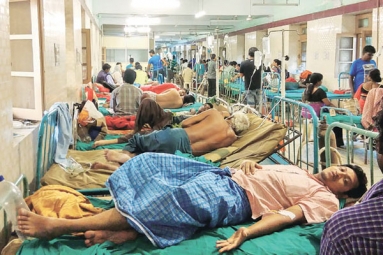
(Image source from: Canva.com)
As dengue cases continue to rise nationwide, it is increasingly crucial to take preventive measures to avoid mosquito bites and eradicate breeding habitats. In my role as a physician, I encounter numerous patients afflicted with dengue, a condition that can be completely avoided with appropriate precautions. Here are some vital preventive actions based on medical advice to help safeguard you and your family. Below are the recommended safety protocols:
Remove Breeding Habitats: Aedes mosquitoes often lay their eggs in clean, standing water. It is essential to empty and clean containers such as buckets, coolers, and flowerpots at least weekly. Ensure that water storage tanks are securely covered. In areas where draining is not possible, consider utilizing larvicides for water bodies.
Dress in Protective Garments: Opt for long-sleeved shirts, full-length trousers, and socks, particularly during the times when mosquitoes are most active (early morning and late afternoon). Make sure that children are consistently dressed in protective attire throughout the day.
Utilize Repellents and Mosquito Nets: Apply mosquito repellent products that contain DEET or picaridin on exposed skin. When sleeping, especially for children and the elderly, use mosquito nets, even during the daytime. Ensure that windows and doors are fitted with mesh screens to block mosquitoes from entering.
Exercise Caution During Peak Activity Hours: The Aedes mosquitoes show heightened activity two hours after dawn and two hours prior to dusk. During these intervals, it’s advisable to remain indoors or take additional protective measures if you need to be outside.
Engage in Community Action: Join local cleanup campaigns. Inform the relevant authorities about stagnant water or locations where mosquitoes may be breeding.
Recognize Early Symptoms: Keep an eye out for symptoms such as high fever, intense headaches, joint pain, pain behind the eyes, and skin rashes. If you experience any of these signs, seek medical help immediately, as early intervention is vital.
Prevention Is Essential: There is currently no specific antiviral treatment available for dengue. The most effective methods to prevent the disease are to maintain good hygiene practices, promote awareness, and control the mosquito population.
Dengue prevention extends beyond individual responsibility; it requires a collaborative effort. Consistent small actions can make a significant difference in saving lives.














